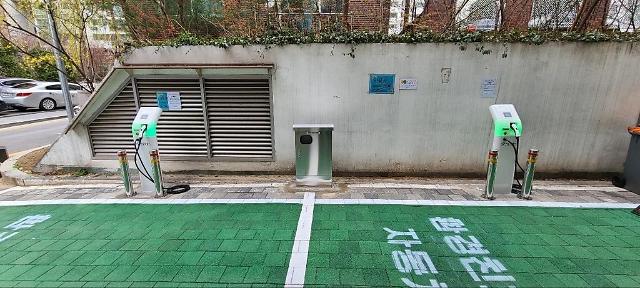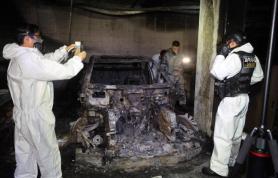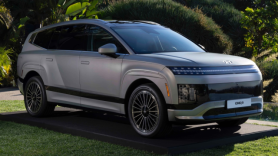
[Courtesy of Seoul City]
As of January 2021, about 135,000 electric vehicles (EVs) were registered in Seoul but there were about 8,500 chargers, meaning that there is about one charger for every 15 EVs. As a state project to achieve net-zero carbon dioxide emissions by 2050, Seoul adopted 27 electric buses to replace diesel buses in January 2021. The city will replace 10 percent of diesel vehicles with electric vehicles by 2026.
Seoul said that 10 streetlight charging stations and 14 bollard stations will be installed on roadsides or alleys nearby residential areas. Drivers can use the chargers when they are using restaurants or other multi-use facilities for a short time. Also, local residents can use the chargers after work. Seoul is yet to decide where the urban facility-type chargers will be installed.
The capital city will also build two integrated EV charging stations at public car parks. The stations use renewable energy sources including sunlight to produce electricity and charge vehicles. A 200 kilowatt-hour-class integrated charging station can fully charge an EV in about 20 minutes. Currently, the law prohibits renewable energy power plant operators from directly selling electricity to consumers. However, Seoul's renewable energy charging station will be temporarily exempted from regulations through a government pilot project.
"We hope the new type of chargers provide convenience for EV drivers," Seoul's climate and environment bureau director Yoo Yeon-sik said in a statement on April 7. Yoo added that the capital city will continue to expand its EV charging infrastructure to create a more dense network of chargers.
Copyright ⓒ Aju Press All rights reserved.


![[K-Tech] Samsung SDI battery powers electric vehicle to Guinness World Record](https://image.ajunews.com/content/image/2025/08/07/20250807091903656890_278_163.jpg)

